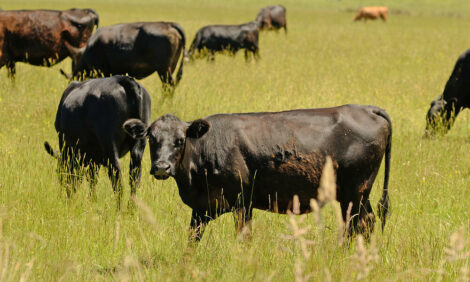



Biotech dairy debate spills across U.S. markets
KANSAS CITY, Missouri - Five years ago, Missouri dairy farmer Leroy Shatto was struggling to stay in business. Today, his herd has more than doubled amid a surge in demand for his product. The difference: a marketing campaign touting Shatto milk as free of artificial hormones."That is what the consumers want now," said Shatto, who runs a small family farm of 220 cows. "People are demanding this stuff not to be in their milk. If I had 100 more cows tomorrow, I still couldn't keep caught up with demand."
Corporate backers and consumer activists have been battling for more than a decade over whether an artificial growth hormone given to dairy cows, known as rbST or rBGH, is harmful to human and animal health.
The debate has taken a marked turn over the last several months as a growing number of dairy producers and food industry players have begun demanding rbST-free milk, citing heightened consumer demand and new niche marketing opportunities.
"We're not making any moral judgments. It is about giving consumers what they want, and there are some consumers who simply do not want artificial growth hormones in their milk," said Marguerite Copel, spokeswoman for Dean Foods Co., the nation's largest milk processor and distributor.
Milk marketed as free of artificial growth hormones is not considered "organic" because it does not meet other criteria. But it still commands a premium price of $1.50 or more per half-gallon over conventional milk on grocery shelves.
Source: Reuters


